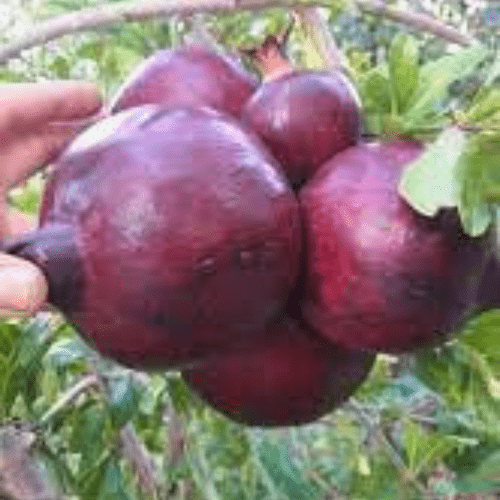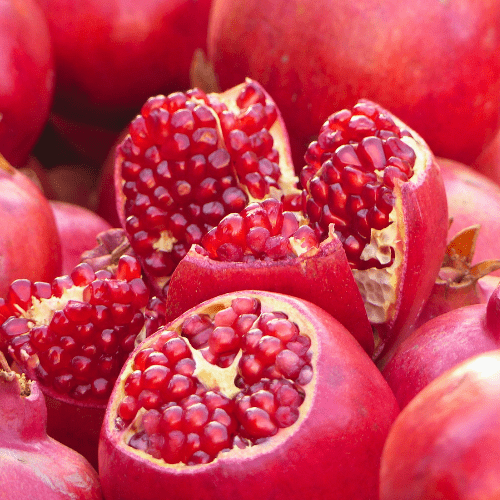Soil
They prefer well-drained soil with a pH range of 5.5 to 7.5. Sandy loam or loamy soils are ideal for good root development and water drainage. You can add a bag of acid compost when planting to achieve a slightly acidic soil.
Watering
While mature pomegranate trees are drought-tolerant, young trees require regular watering until established. Once established, water deeply but infrequently, allowing the soil to dry out between waterings.
Pruning
Prune Bhagwa pomegranate trees to maintain an open canopy and promote air circulation. This helps prevent diseases and encourages fruit production on outer branches.
Fertilising
To support growth and fruiting, apply one teaspoon every 4-5 months of our berry and fruit slow release fertiliser. Press the fertiliser balls gently under the soil and add a layer of mulch, moving the mulch away from the plant stem.
Mulch:
Apply 2 to 5 centimetres of pine bark mulch to protect the roots from UV damage and drying out. It retains moisture, and maintains an optimal pH. Do not let the mulch touch the plant stem, as it may cause infection or rot.
Pest and Disease Control
Monitor for common pests like aphids, scales, and fruit borers. We recommend Effective Microorganisms to prevent the spread of these pests and diseases. Hose the tree first, to remove the aphids, and then spray well with EM Control. As they tree grows larger it will be healthy and pests will be a thing of the past. Use as a preventative once a month.
Harvesting
Bhagwa pomegranates are typically ready for harvest in late summer to early fall, depending on the local climate. Harvest when the fruit reaches full color and makes a metallic sound when tapped. Cut the fruit from the tree rather than pulling it to avoid damaging the branches.








